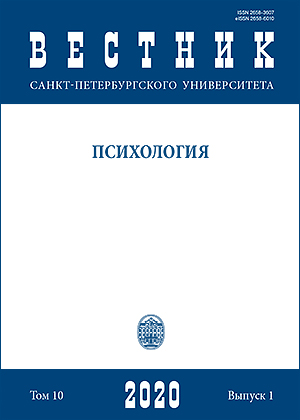Socio-psychological research of Russian business leaders’ value preferences
DOI:
https://doi.org/10.21638/spbu16.2020.106Abstract
The article presents the results of a study of leaders’ value orientations. This study is the first stage of scientific research, which aims to assess the leadership potential of Russian entrepreneurship and draw conclusions about the personnel readiness of Russian business for the transition to a digital society. The mechanism for assessing leadership potential is established on a situational-role leadership model based on Kurt Levin’s field theory. During interviews with entrepreneurs and top managers of large companies, four basic situations in the business environment were identified, which correspond to four fundamental leadership styles. For each leadership style, hypotheses were formulated regarding the set of value orientations characteristic of a given leadership style. An empirical study of the value preferences of representatives of Russian business was carried out in 2018. A total of 117 respondents took part in the study. The survey was conducted online using the Google Forms service. The data collected was subjected to correlation analysis (Pearson method) and hierarchical cluster analysis (Ward method). In general, the results of the study confirmed hypotheses about the existence of stable correlations of basic value orientations that determine the profiles of distinguished leadership styles. The number of some identified parameter groups is small (in particular, the number of the group that has common characteristics of the innovative leadership style profile is 5 people, comprising 4% of the number of respondents), which may indicate an insufficiently accurate determination of the set of value orientations that describe this particular leadership style and the imbalance of the questionnaire itself, as well as the absence among respondents of the business elite of respondents who adhere to this leadership style. In the future, we plan to expand the research sample by conducting surveys of leaders in the NGO and social business segments, as well as conducting the second stage of the study, which includes comprehensive testing to determine the leadership style and selective in-depth interviews with respondents in order to verify the correlation between the identified leadership style and environment in which they carry out their activities.
Keywords:
Russian elite, values, leadership, digital economics
Downloads
References
References
Downloads
Published
How to Cite
Issue
Section
License
Articles of "Vestnik of Saint Petersburg University. Psychology" are open access distributed under the terms of the License Agreement with Saint Petersburg State University, which permits to the authors unrestricted distribution and self-archiving free of charge.




